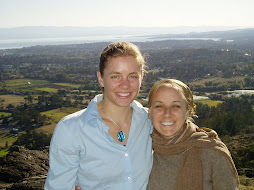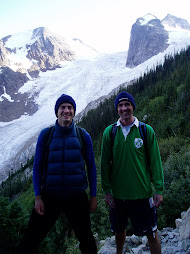
I'm writing to you from Varanasi in India where I've been for the past 5 days. I decided to leave Nepal and come to India to do my yoga teacher training for the month of March and to explore the rest of the time. India's blog will be along shortly, in the meantime let's say goodbye to Nepal...
In the weeks before Christmas, I was staying with a Nepali family at their farm in the mountains, two hours from Kathmandu, and, as promised, I have recently returned. I found the contact information for Hasara farm in a way that seemed to be preordained by the universe. I knew that I wanted to volunteer somewhere and an Organic farm seemed to be the perfect place to integrate myself into Nepali culture, by living closely with a Nepali family. I wrote down the information for an Organic farm volunteer position and then promptly lost it. As fate would have it, I was given the information for Hasara farm, by an Israeli girl who works for a volunteer organization in Kathmandu. I was shocked however, when I returned to Kathmandu later, to find the original ad, but it was for a completely different farm, which told me that I was meant to be HERE, for reasons that would be revealed to me, in the months ahead.
Let me just take a moment to introduce you to the family. Govinda is the father, an Organic farmer, educator, jolly business man, and V.I.P to the agricultural industry of Nepal. I learn more about Organics, herbs, food and life in an hour with this man than I would in a semester at school. Mitu is the revered mother of the house, who is a master of multi-tasking. She manages everyday to wake up before the sun to make tea for the household, begins the arduous task of fixing up a healthy breakfast, while feeding the farm animals in between, she hustles three teenagers into getting ready for school, feeds everyone, washes the dishes and her face all with a smile and without breaking a sweat, before 9 am. She’s playful and cheerful yet gently authoritative, demanding respect with her demeanor alone, from everyone who crosses her path. I’m in awe of this woman and I’m taking notes from observations of her cooking and caretaking skills. She’s killing me softly with everyday extra servings of wholesome, Organic Dal Bhat. Chandra and Rudra are thirteen year old twin boys who exuberate more emotional and intellectual intelligence than any other teenagers I’ve met. They show interest in all that I do and ask me hoards of questions about Canadian culture. Rudra has taken a liking to my IPOD, uses it sometimes as a fake phone in which to make phone calls to his diplomat friends, and he now knows how to work it better than I do. Chandra has mastered the art of cross stitch embroidery, that I taught him when I arrived at the farm. I think he’s trying to make himself a sweater in which to look strikingly handsome, in the hopes that someone will take another picture of him. One or both are bound to end up as Nepali leaders with Organic farms of their own someday. Rassi is Mitu’s niece. She’s a painfully shy but incredibly sweet young girl who doesn’t speak much English but since I gave her some English books, has been reading them and sleeping with them in hopes of improving her English skills. She cooks when Mitu is busy, and the food she makes is better than anything I’ve ever taken out of a pan, and she’s half my age… I can’t begin to explain the joy I receive from spending a day with this family. Their cheer and humility make it impossible for me to get stuck in a gloomy state. In the months I’ve been around the farm, I haven’t seen a single one of them angry or show even a trace of sadness. This is truly an inspiring and astounding household.
Life at the farm is busy but relaxed, noisy but peaceful, productive but lazy (just me), and a fantastic place to spend my remaining time in Nepal. In my first week at the farm I was taught by Mitu, many tricks of the Nepali Organic farm trade. She and the kids taught me how to make different Nepali dishes, including mo mo’s (dumplings), how to plant seeds along the wall of a rice terrace, and how to extract honey from a bee hive using plastic bags as gloves and a mosquito net as armor. I was also taught in a humorous manner, how to tie a sari. Govinda’s nephew was getting married and I was invited to the wedding celebrations. I arrived and the children surrounded me asking “why aren’t you wearing a sari?” I pulled the one Mitu had lent me out of my bag and a large group of women, teenagers and children assisted with the process of wrapping me up like an elaborately decorated present. I had a difficult time walking for the rest of the day but I managed. The children had fun imitating my English and teaching me Nepali, although I was hopeless, and laughing at my attempt to dance with my gimp leg. The newlyweds arrived with the entourage of the male half of the party, the groom resembling a peacock and the bride covered in red and in despair. I asked the boys, Chandra and Rudra later why she looked so miserable and they explained it was what was expected of the bride on her wedding day. She is leaving her family for the first time in her life, to live with a new family that she doesn’t know, and if she were to smile, her family would be offended, taking it as a sign that she was happy to be leaving home, and therefore ungrateful for all they had done for her. I felt that with this genuine exposure to the mysterious life around me, my understanding of Nepali culture had suddenly begun to blossom.
I was riding on a typically crowded local bus a few days ago on my way to the farm. As usual, I sat cramped with too many bodies for the vehicle to hold with no space remaining on the benches, or the roof of the bus, at least in my opinion. Once the bus man had allowed a few more to squeeze in the bus and on the roof, and the seats were surely spoken for, more women climbed aboard and found the small wicker stools, stored under the benches, on which to sit. As a woman sat down, she rested her hand on my leg and used it to stable herself on her seat. It took me by surprise, as it always does, when a complete stranger initiates physical contact, which is practically unheard of in our culture. I sat still with a motivation comparative to that of not wanting to wake a baby or a puppy by moving for fear of disturbing it to the point of losing contact. I enjoyed the sensation of closeness with the people around me, the woman with her hand on my leg, the child smiling at me when I looked her way, the man stuck to my side who would only be closer if he was sitting on my lap. It reminded me of what I love about Nepal and the Nepalis, and it made me wonder why we are so disconnected from one another in our culture.
My acceptance into this family and this community, was an amazing gift, which taught me a great deal about how to live a modest and joyfully peaceful life. Once I moved away from the money making mindset of Kathmandu, I felt included and accepted by every Nepali that I’ve come in contact with. I’ve been invited into stranger’s homes, I’ve held hands with welcoming women, I’ve been stared at and laughed at but always with a heart of curiosity and playfulness. The Nepalis have a gentle demeanor which reminds me of the laughing Buddha, as they seem to have mastered the art of laughing from deep within their gut, remaining childlike in their personalities but steadfast and vigilant in their work. I’ve been attentively taken care of each day, but mainly when my foot prevented me from functioning normally, and also when my fear prevented me from sleeping alone in the dark. Mitu and Rassi spent many nights sleeping in my room in the other guest bed, just to keep me company, saying that if they came to Canada, me and my family would do the same for them. I’m not sure that I’ve ever been capable of caring for others the way that these people care for one another, but they have certainly given me some valuable tools to emulate in my relationships back home. Their unconditional love and acceptance accompanied by all that they’ve given me spiritually, has made me wonder again about whether or not we help others in our efforts to volunteer to the same degree in which they so willingly yet sometimes unknowingly help us.
Today is my last day at the farm and I’m sitting at the back of the house, in the sun, writing my blog posting now to document my experience while it’s fresh in my mind. I am leaving for India in a few days and I have to say goodbye for now to this miraculous place. I was told by a Kathmandu expat that “Nepal is the mirror by which all of our illusions are revealed.” My experiences here have caused me to see into the depths of my being and I haven’t been given the luxury of a concealing mask or makeup to hide behind. Nepal gave me a lesson of staying put (aside from a Christmas vacation) and returning, despite discomforts, providing a challenging but effective way to see myself and my reactions through the experiences that don’t go quite as I’d expected, through my interactions with others, not always 100% positive but always perfect, and a lesson of giving me the bare minimum when I treaded cautiously and giving me everything when I finally surrendered.








2 comments:
great pix and lots of details in the postings, thanks for bringing us along on your journeys :-) - enjoy india ~ k xo
Hey... I read your information from begining to the end and I think that is interesting information.. I think i will tell this information again to my friend and I hope this information will be usefull for them... oh yes I suggest you to check Yoga Teacher Training on my site www.yogalife.org , I hope the Information on my site will be usefull for you..and we can share each other. thank you... :-)
Post a Comment